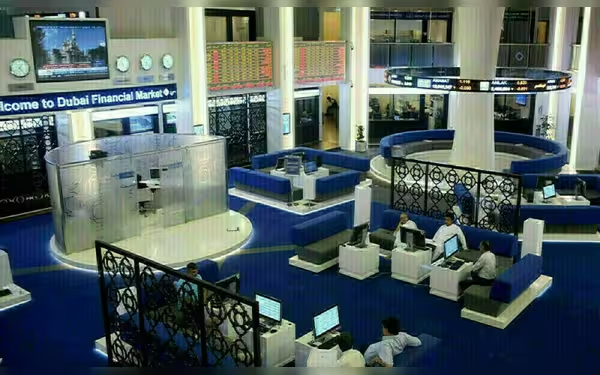Thursday, November 7, 2024 04:33 PM
Gulf Markets React to Rising Middle East Tensions
- Iran may retaliate against Israel from Iraq.
- Saudi Arabia's index rises despite regional concerns.
- Egypt's blue-chip index shows resilience amid geopolitical climate.
 Image Credits: brecorder
Image Credits: brecorderGulf markets remain subdued as tensions rise between Iran and Israel, impacting stock performances across the region.
In recent days, tensions in the Middle East have escalated, particularly concerning Iran and Israel. A report has emerged suggesting that Iran may be preparing to launch a retaliatory strike against Israel from Iraqi territory. This news has raised concerns across the Gulf region, leading to a subdued performance in most stock markets on Sunday.
The United States has issued a stern warning to Iran, cautioning against any further attacks on Israel. According to reports, U.S. officials have indicated that if Israel is attacked again, Washington may not be able to restrain its ally. This situation is particularly sensitive as it unfolds just weeks before the U.S. presidential election scheduled for November 5.
In the Gulf region, Saudi Arabia's benchmark index saw a slight increase of 0.2%, buoyed by a notable 3.2% rise in shares of ACWA Power Company. This indicates that while there are overarching concerns, some companies are still managing to thrive amidst the uncertainty. Additionally, MBC Group experienced a significant surge of 10%, reaching its daily maximum limit, following a binding agreement with the Public Investment Fund to sell its entire stake in the media giant.
Conversely, Qatar's index faced a decline of 0.2%, primarily due to a 0.5% drop in shares of Qatar National Bank, the largest lender in the Gulf. This reflects the broader impact of regional tensions on financial markets, as investors remain cautious.
Outside the Gulf, Egypt's blue-chip index showed resilience, gaining 0.6%. This was largely driven by a 1.3% increase in shares of Commercial International Bank. The Egyptian Prime Minister, Mostafa Madbouly, announced that the International Monetary Fund (IMF) would begin its review of Egypt's loan program on Tuesday, which could have significant implications for the country's economic stability.
The current geopolitical climate is undeniably affecting stock market performances across the Gulf region. Investors are advised to stay informed and exercise caution as the situation develops. The interplay between regional tensions and market dynamics serves as a reminder of the interconnectedness of global finance and politics. As we move forward, it will be crucial to monitor these developments closely, as they could have lasting effects on both local and international markets.













